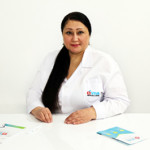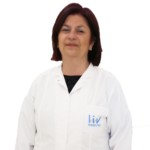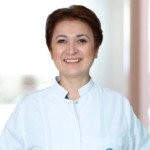-
 Medical articles
CAR T therapy: helps treat cancer when other methods fail
Medical articles
CAR T therapy: helps treat cancer when other methods fail
-
 Medical articles
Cancer incidence is steadily increasing: disappointing WHO forecast for 2050
Medical articles
Cancer incidence is steadily increasing: disappointing WHO forecast for 2050
-
 Medical articles
Stem cells bring hope to millions of people suffering from hearing loss
Medical articles
Stem cells bring hope to millions of people suffering from hearing loss
-
 Medical articles
TOP 10 clinics for oncology treatment 2023
Medical articles
TOP 10 clinics for oncology treatment 2023
-
 Medical articles
New methods for diagnosing cancer diseases
Medical articles
New methods for diagnosing cancer diseases
All news
Epilepsy treatment
Epilepsy is a group of chronic diseases with different causes, in which there is a tendency of the nervous system to epileptic reactions to weak stimuli.
According to WHO, 80% of epileptic seizures can be cured with the right treatment. In addition to effectiveness, epileptologists select therapy to eliminate side effects.
For the treatment of complex forms of epilepsy, doctors use: stimulation of the vagus nerve, laser or radiofrequency coagulation of the epileptic focus.
MedTour patients recommend clinics for the treatment of epileptic:
Doctors for the treatment of epilepsy
Frequently Asked Questions
Epilepsy is a common neurological disorder that manifests itself in repeated motor and sensory attacks. Up to 1% of the population has an active form of epilepsy. There are different types of epilepsy. Childhood epilepsy is caused by mutations, genetic diseases, and pregnancy pathologies. Adults get it with head injuries and brain tumors.
5% of the population experience at least one seizure during life. According to the National Institute of Health in the UK — up to 30% of patients have an incorrect diagnosis of epilepsy. Be sure to consult a doctor after the first episode, similar to an epileptic seizure. For early diagnosis, a neurological examination, EEG, and MRI are necessary.
Up to 30% are mistakenly treating cardiogenic, endocrine, and psychogenic attacks as epilepsy. The key to an effective treatment for epilepsy is to correctly determine its type and choose the appropriate medicine.
Two out of three patients control the active form of the disease with medication. For drug-resistant epilepsy, there are 5 other treatment options, including neurosurgery.
Not more than 30% of patients have a lifetime diagnosis. According to the World Health Organization, drug withdrawal is considered after 1-2 years without seizures for a child, and 2-5 years for an adult.
Cost of the diagnosis and epilepsy treatment in the world`s advanced clinics:
- Epileptologist consultation — from $ 120 to $ 1,000
- Screening — from $ 1,000 to $ 14,000
- Medication — from $ 30 to $ 200 per month
- Other treatments range from $ 14,000 to $ 70,000
The most important is to choose the right doctor and hospital with the best equipment.
The specialist epileptologist should be a member of the antiepileptic communities, he has to participate in research and correctly use advanced developments, long work experience also matters.
A hospital room should be fully equipped with a 24-hours video EEG monitoring, MRI from 3Tl with epilepsy protocol, 18F-FDG-PET-CT, and laboratory with gene sequencing and pharmacogenetic testing.
7 advanced epilepsy clinics:
- Tel Aviv Sourasky Medical Center — Tel Aviv, Israel
- Medipol University Hospital — Istanbul, Turkey
- Sant Joan de Deu — Barcelona, Spain
- Helios — Krefeld, Germany
- Klinikum Links der Weser — Bremen, Germany
- Samgung hospital — Seoul, South Korea
- Epilepsia Russi Institut — Barcelona, Spain
There are no restrictions for patients with epilepsy, however, 2 groups of substances must be taken with caution. The first one is neurotropic toxins and stimulants, such as alcohol, caffeine, and nicotine. They weaken the antiepileptic system of the brain and increase the risk of seizures.
The second one is non-steroidal anti-inflammatory and antibiotics. They affect the functioning of the stomach, liver, and kidneys. They also disrupt the concentration of antiepileptic drugs in the blood, and the risk of the seizure is higher.
According to the Epilepsy Foundation, you can live a full life with epilepsy: work, travel, do sports, have a family. Patients are advised to learn more about the disease, and share information with loved ones. 67% of people no longer experience seizures if they follow the correct treatment.
The most effective methods for diagnosing and treating epilepsy in 2020 (According to ILAE)
How do the world’s leading epileptologists examine epilepsy?
There are two main methods:
- EEG (electroencephalography);
- Brain MRI (magnetic resonance imaging).
EEG is necessary to record the electrical activity of the brain. Advanced clinics use various types of EEG:
Video monitoring in order to simultaneously record body movements during an impulse;
- The multiple sleep latency test
- 24-hours monitoring, which is the most accurate;
- Hyperventilation and photic stimulation EEG to test the response to external stimuli. For example, 3% of patients have a sensitivity to light.
Modern devices allow you to accurately determine the focus and prescribe treatment.
MRI allows you to find the structural cause of epilepsy. A high power device is important for the diagnosis of epilepsy, such as 3 Tesla, which allows you to consider areas up to 1 mm, and 7T allows you to see structures up to 0.5 mm in diameter.
Innovative diagnostic methods that are available in our clinics
Accurate diagnosis is half of the treatment. Often clinics cannot fully examine the patient and select the correct therapy due to the lack of equipment. The world’s advanced neurological centers are equipped with new developments, such as:
- 18F-FDG PET-CT studies the localization of seizure, while MRI can’t show it
- Single-photon emission computed tomography (SPECT) is a nuclear radiology study that measures the blood flow in the brain
- SISCOM generates hypothesis for electrode implantation and sites the surgery.
- MEG is performed to map brain function and to identify the exact location of the source of epileptic seizures
- SPM is used to find epileptic areas in mesial structures that may be missed on visual examination
- Curry analysis is a technique that takes EEG data and projects it onto an MRI of the brain to show doctors where seizures are occurring
- Whole-Exome Sequencing (WES) is a genomic technique for sequencing all of the protein-coding regions of genes that give an answer about the causes of epilepsy
- Pharmacogenetic testing gives the most effective treatment, without trial and error
- Determination of the concentration of PEP in the blood. The same dose of medicine is absorbed in different ways. The analysis allows you to control the concentration of the antiepileptic drug in the working range.
The most effective treatments:
- Medication is the main treatment for epilepsy and individual treatment regimen is adjusted personally. The type of seizure, the type of epilepsy, concomitant diseases, age, gender, lifestyle, and personal wishes of the patient are considered. Current protocols consist of more than 35 drugs. Doctors also consider the mechanism of action, side effects, and the interaction of these drugs. New drugs of 2015-2020 have high efficacy rates and minimal side effects.
- Psychotherapy is a set of relaxation techniques, cognitive-behavioral therapy, and biological feedback. It is used for focal forms of epilepsy and allows better control of the seizures.
Epilepsy Surgery
Epilepsy surgery may be an option when:
- epilepsy is in a small lesion,
- it is easily accessible
- there are no vital centers around
Innovative methods of surgery help to achieve maximum effects:
- Vagus nerve stimulation (VNS). Vagus stimulator improves the condition of 30% of patients.
- Deep brain stimulation (DBS). The method helps to reduce seizures and control their distribution.
- Responsive Neurostimulation (RNS). Respond quickly (within milliseconds) to seizure activity by giving small bursts or pulses of stimulation. It helps brainwaves return to normal, even before it could turn into a seizure.
- Subthreshold cortical stimulation. Shows promise in allowing us to stop seizures in critical brain regions without affecting function.
- Minimally invasive robotic laser and radio wave surgery. Using MRI navigation, the robot conducts laser or radiofrequency point evaporation of the epilepsy site.
- Stereotactic radiosurgery. An alternative to the previous method for individual parts of the brain. Similar to Gamma and Cyberknife.
Treatment results:
Complex diagnostics help you to determine the location of the epilepsy site. Epileptologists selects an individual therapy program, which allows the patient to reduce or completely stop the seizures and live a full life.
How to choose the best clinic?
- Consider separate epilepsy treatment centers, not just neurological clinics.
- There should be a specialized epileptologist. If the patient is a child, then the doctor should specialize in the treatment of epilepsy in children. He should be a member of the ILAE, AES, IBE, Epilepsy foundation, or other international antiepileptic community.
- Epilepsy treatment center should be fully equipped for diagnosis (24-hour video EEG monitoring room, MRI, 18F-FDG PET-CT, SPECT, SISCOM, MEG, SPM, CURRY, genetic laboratory). DBS, RNS, and other surgical methods should be available.
Published:
Updated:





